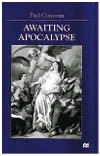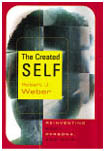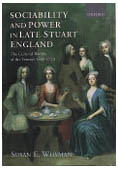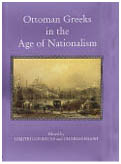In Review: April 5, 2000
Recently published books by Alumni and Faculty
The Decoy, and Other Stories, by Robert Steiner '47 (First Books
Library, 800-839-8640, $15). A collection of short stories, most with a
fantasy or science fiction theme. Steiner lives in Ellicott City, Maryland.
 Awaiting Apocalypse, by Paul Corcoran '66 (St. Martin's, $59.95).
Argues that ordinary and extraordinary endings are inherent in human experience
and have historical meaning. Corcoran is an associate professor of politics
at the University of Adelaide, South Australia.
Awaiting Apocalypse, by Paul Corcoran '66 (St. Martin's, $59.95).
Argues that ordinary and extraordinary endings are inherent in human experience
and have historical meaning. Corcoran is an associate professor of politics
at the University of Adelaide, South Australia.
Capitalists in Spite of Themselves: Elite Conflict and Economic Transitions
in Early Modern Europe, by Richard Lachmann '77 (Oxford, $49.95). A
study of the transition from feudalism to capitalism in Western Europe.
Lachmann is an associate professor of sociology at SUNY, Albany.
 What's Not To Love: The Adventures of a Mildly Perverted Young
Writer, by Jonathan Ames '87 (Crown, $23). In humorous essays, Ames
chronicles his forays into New York's underbelly.
What's Not To Love: The Adventures of a Mildly Perverted Young
Writer, by Jonathan Ames '87 (Crown, $23). In humorous essays, Ames
chronicles his forays into New York's underbelly.
The Gendered Atom: Reflections on the Sexual Psychology of Science,
by Theodore Roszak *58 (Conari, $21.95). Argues that centuries of sexual
politics have distorted scientific research and development, as well as
our relationship to one another and to the natural world. Roszak is a professor
of history at California State University, Hayward.
 The Created Self: Reinventing Body, Persona, and Spirit, by Robert
J. Weber *62 (Norton, $25.95). Uses the insights of William James and contemporary
evolutionary psychology to examine issues of the self and its creation.
Weber is a psychologist in Albuquerque.
The Created Self: Reinventing Body, Persona, and Spirit, by Robert
J. Weber *62 (Norton, $25.95). Uses the insights of William James and contemporary
evolutionary psychology to examine issues of the self and its creation.
Weber is a psychologist in Albuquerque.
A Brief History of the Caribbean: From the Arawak and Carib to the
Present, by Jan Rogozinski *67 (Facts on File, $35). A newly revised
edition updated through the end of the century. Rogozinski is a freelance
writer living in Ft. Lauderdale.
The Advent of the Algorithm: The Idea that Rules the World, by
David Berlinski *68 (Harcourt, $28). Explores the history of the algorithm
and the mathematicians whose discoveries materialized into the digital computer
and the Internet. Berlinski is a writer living in Paris.
Of Cabbages and Kings County: Agriculture and the Formation of Modern
Brooklyn, by Marc Linder *73 and Lawrence Zacharias (University of Iowa,
$21.95). A history of the lost agricultural community of Brooklyn. Linder
is a professor of law at the University of Iowa. Zacharias is an associate
professor of management at the University of Massachusetts at Amherst.
Public Integrity, by J. Patrick Dobel *76 (Johns Hopkins, $38).
Focusing on public officials , Dobel describes and analyzes the elements
that constitute integrity in public office. He is a professor of public
affairs at the University of Washington.
 Sociability and Power in Late-Stuart England: The Cultural Worlds
of the Verneys, 1660-1720, by Susan E. Whyman *93 (Oxford, $55). Reconstructs
the changing country and London worlds of a family of English gentry. Whyman
lives in Fair Haven, New Jersey.
Sociability and Power in Late-Stuart England: The Cultural Worlds
of the Verneys, 1660-1720, by Susan E. Whyman *93 (Oxford, $55). Reconstructs
the changing country and London worlds of a family of English gentry. Whyman
lives in Fair Haven, New Jersey.
From Appomattox to Montmartre: Americans and the Paris Commune,
by Philip M. Katz *94 (Harvard, $45). The author shows how American political
culture was shaped by the Paris Commune. Katz is director of public programs
at the New York Council for the Humanities.
The South in Black and White: Race, Sex, and Literature in the 1940s,
by McKay Jenkins *96 (University of North Carolina, $34.95). Focuses on
the authors W. J. Cash, William Alexander Percy, Lillian Smith, and Carson
McCullers, arguing that they constructed images of race and race relations
within works that have little, if anything, to do with race. Jenkins teaches
journalism and American literature at the University of Delaware.
Cardano's Cosmos: The Worlds and Works of a Renaissance Astrologer,
by Anthony Grafton (Harvard, $35). Argues that Cardano's astrology was a
profoundly empirical and highly influential art integral to the attempts
of 16th-century scholars to understand their universe and themselves. Grafton
is Dodge Professor of History.
Geons, Black Holes & Quantum Foam: A Life in Physics, by John
Archibald Wheeler with Kenneth Ford *53 (W. W. Norton, $14.95). Titled after
three of the terms Wheeler coined during his career, this is an account
of the history, personalities, and ideas of 20th-century physics. Wheeler
is a professor, emeritus, of physics; Ford is a physicist and writer.
 How Things Are, by James Richardson '71 (Carnegie Mellon, $12.95).
This is Richardson's fourth volume of poetry; he is a professor of English
and creative writing.
How Things Are, by James Richardson '71 (Carnegie Mellon, $12.95).
This is Richardson's fourth volume of poetry; he is a professor of English
and creative writing.
Loose Connections: Joining Together in America's Fragmented Communities,
by Robert Wuthnow (Harvard, $35). Focuses on the emergence of more varied
and informal networks as a constructive adaptation to changes in American
society, business, and government. Wuthnow is Gerhard R. Andlinger Professor
of Social Sciences.
Diversity and Distrust: Civic Education in a Multicultural Democracy,
by Stephen Macedo (Harvard, $45). The author defends a "civic liberalism"
that supports efforts to inculcate shared political virtues while leaving
many larger questions of meaning and value to private communities. Macedo
is Laurance S. Rockefeller Professor of Politics.
 Ottoman Greeks in the Age of Nationalism: Politics, Economy, and
Society in the Nineteenth Century, edited by Dimitri Gondicas and Charles
Issawi (Darwin, $34.95). Essays derived from a 1989 Princeton conference
that brought together leading neo-Hellenists and Ottomanists. Gondicas is
executive director of the Program in Hellenic Studies. Issawi is Bayard
Dodge professor of Near Eastern Studies, emeritus.
Ottoman Greeks in the Age of Nationalism: Politics, Economy, and
Society in the Nineteenth Century, edited by Dimitri Gondicas and Charles
Issawi (Darwin, $34.95). Essays derived from a 1989 Princeton conference
that brought together leading neo-Hellenists and Ottomanists. Gondicas is
executive director of the Program in Hellenic Studies. Issawi is Bayard
Dodge professor of Near Eastern Studies, emeritus.
GO TO
the Table of Contents of the current issue
GO TO
PAW's home page
paw@princeton.edu
 Awaiting Apocalypse, by Paul Corcoran '66 (St. Martin's, $59.95).
Argues that ordinary and extraordinary endings are inherent in human experience
and have historical meaning. Corcoran is an associate professor of politics
at the University of Adelaide, South Australia.
Awaiting Apocalypse, by Paul Corcoran '66 (St. Martin's, $59.95).
Argues that ordinary and extraordinary endings are inherent in human experience
and have historical meaning. Corcoran is an associate professor of politics
at the University of Adelaide, South Australia. What's Not To Love: The Adventures of a Mildly Perverted Young
Writer, by Jonathan Ames '87 (Crown, $23). In humorous essays, Ames
chronicles his forays into New York's underbelly.
What's Not To Love: The Adventures of a Mildly Perverted Young
Writer, by Jonathan Ames '87 (Crown, $23). In humorous essays, Ames
chronicles his forays into New York's underbelly. The Created Self: Reinventing Body, Persona, and Spirit, by Robert
J. Weber *62 (Norton, $25.95). Uses the insights of William James and contemporary
evolutionary psychology to examine issues of the self and its creation.
Weber is a psychologist in Albuquerque.
The Created Self: Reinventing Body, Persona, and Spirit, by Robert
J. Weber *62 (Norton, $25.95). Uses the insights of William James and contemporary
evolutionary psychology to examine issues of the self and its creation.
Weber is a psychologist in Albuquerque. Sociability and Power in Late-Stuart England: The Cultural Worlds
of the Verneys, 1660-1720, by Susan E. Whyman *93 (Oxford, $55). Reconstructs
the changing country and London worlds of a family of English gentry. Whyman
lives in Fair Haven, New Jersey.
Sociability and Power in Late-Stuart England: The Cultural Worlds
of the Verneys, 1660-1720, by Susan E. Whyman *93 (Oxford, $55). Reconstructs
the changing country and London worlds of a family of English gentry. Whyman
lives in Fair Haven, New Jersey. How Things Are, by James Richardson '71 (Carnegie Mellon, $12.95).
This is Richardson's fourth volume of poetry; he is a professor of English
and creative writing.
How Things Are, by James Richardson '71 (Carnegie Mellon, $12.95).
This is Richardson's fourth volume of poetry; he is a professor of English
and creative writing. Ottoman Greeks in the Age of Nationalism: Politics, Economy, and
Society in the Nineteenth Century, edited by Dimitri Gondicas and Charles
Issawi (Darwin, $34.95). Essays derived from a 1989 Princeton conference
that brought together leading neo-Hellenists and Ottomanists. Gondicas is
executive director of the Program in Hellenic Studies. Issawi is Bayard
Dodge professor of Near Eastern Studies, emeritus.
Ottoman Greeks in the Age of Nationalism: Politics, Economy, and
Society in the Nineteenth Century, edited by Dimitri Gondicas and Charles
Issawi (Darwin, $34.95). Essays derived from a 1989 Princeton conference
that brought together leading neo-Hellenists and Ottomanists. Gondicas is
executive director of the Program in Hellenic Studies. Issawi is Bayard
Dodge professor of Near Eastern Studies, emeritus.